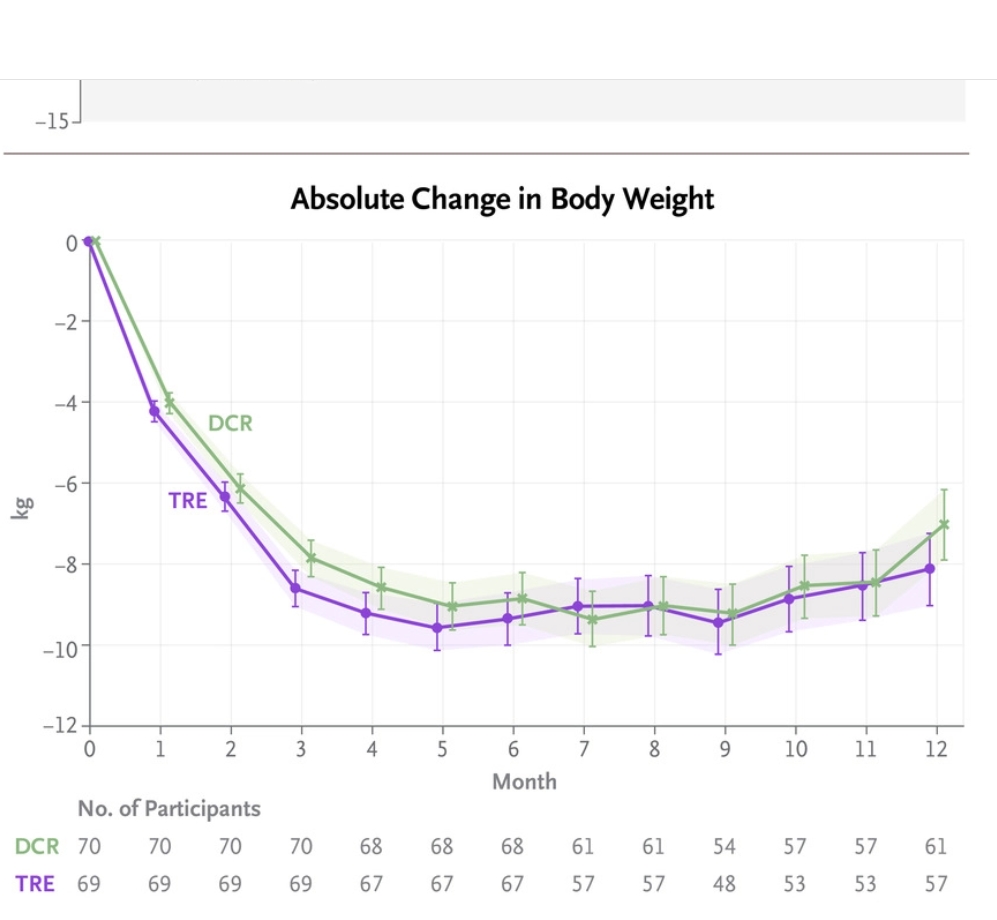A randomized controlled trial to isolate the effects of fasting and energy restriction on weight loss and metabolic health in lean adults
Iain Templeman Science Translational Medicine 16 Jun 2021: Vol. 13, Issue 598, eabd8034
Not so fast
Intermittent fasting is increasingly popular, but whether fasting itself offers specific nutritional benefits in lean individuals compared to traditional daily calorie restriction is unknown. In a small clinical trial of healthy individuals, Templeman et al. found that alternate-day fasting without energy restriction was ineffective at reducing body mass. Even with net energy intake restricted to that of daily dieters, alternate-day fasting less effectively reduced body fat content and offered no additional short-term improvements in metabolic or cardiovascular health compared to daily energy restriction.
Abstract
Intermittent fasting may impart metabolic benefits independent of energy balance by initiating fasting-mediated mechanisms. This randomized controlled trial examined 24-hour fasting with 150% energy intake on alternate days for 3 weeks in lean, healthy individuals (0:150; n = 12). Control groups involved a matched degree of energy restriction applied continuously without fasting (75% energy intake daily; 75:75; n = 12) or a matched pattern of fasting without net energy restriction (200% energy intake on alternate days; 0:200; n = 12). Primary outcomes were body composition, components of energy balance, and postprandial metabolism. Daily energy restriction (75:75) reduced body mass (−1.91 ± 0.99 kilograms) almost entirely due to fat loss (−1.75 ± 0.79 kilograms). Restricting energy intake via fasting (0:150) also decreased body mass (−1.60 ± 1.06 kilograms; P = 0.46 versus 75:75) but with attenuated reductions in body fat (−0.74 ± 1.32 kilograms; P = 0.01 versus 75:75), whereas fasting without energy restriction (0:200) did not significantly reduce either body mass (−0.52 ± 1.09 kilograms; P ≤ 0.04 versus 75:75 and 0:150) or fat mass (−0.12 ± 0.68 kilograms; P ≤ 0.05 versus 75:75 and 0:150). Postprandial indices of cardiometabolic health and gut hormones, along with the expression of key genes in subcutaneous adipose tissue, were not statistically different between groups (P > 0.05). Alternate-day fasting less effectively reduces body fat mass than a matched degree of daily energy restriction and without evidence of fasting-specific effects on metabolic regulation or cardiovascular health.














